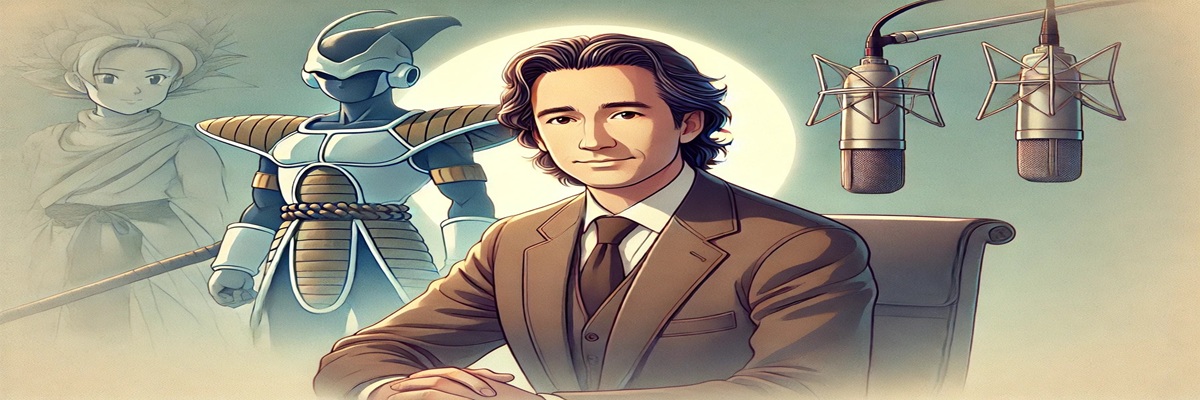The French voiceover community — and anime fans around the world — are mourning the death of Éric Legrand, one of France’s most iconic dubbing actors. Best known as the voice of Vegeta in the French-language version of Dragon Ball Z, Legrand passed away on May 22, 2025, at the age of 66.
Legrand’s distinctive tone, commanding delivery, and ability to convey emotional intensity made him a defining voice in French anime dubbing. While his most famous work was as the proud and powerful Saiyan prince, his career extended far beyond a single role. Over the course of four decades, he became a trusted, familiar voice for generations of viewers.
A Storied Career in Voice Acting
Éric Legrand was born on August 5, 1958, in Paris. He began working in dubbing during the 1980s, a time when anime and American cartoons were beginning to establish a foothold in France. He quickly became known for his versatile range and ability to adapt to different genres — from fantasy and action to comedy and educational programming.
His breakout role came with Saint Seiya, where he voiced the heroic Pegasus Seiya. The series was part of the “Club Dorothée” lineup, a block of programming that introduced Japanese anime to French youth in the late ’80s and early ’90s. Legrand’s performance helped cement the show’s success and earned him recognition in fan communities across France and French-speaking countries.
When Dragon Ball Z began airing in France, Legrand took on the voice of Vegeta — a role that would define his legacy. Over the years, he also voiced Yamcha, giving him the rare distinction of portraying two core characters in the same franchise. Outside of anime, he contributed to numerous Western shows and films, including Captain Planet and the Planeteers, Archer, and several live-action productions requiring French dubbing.
A Complex Relationship With Anime
Unlike many modern voice actors who enter the industry as fans, Legrand’s entry into anime was strictly professional. In interviews, he openly admitted that he wasn’t particularly interested in the genre when he first started working on Dragon Ball Z. The scripts were often unfamiliar, the characters stylized, and the production schedule demanding. Yet, despite the distance he initially felt from the material, Legrand brought a sense of discipline and integrity to every line.
Over time, he came to understand how important his performances were to the fans. Vegeta, in particular, resonated with audiences because of his growth — from arrogant rival to complex antihero. Legrand’s delivery captured that evolution with a blend of intensity, restraint, and subtle vulnerability.
As fan events and anime conventions gained popularity in France, Legrand began to meet viewers who had grown up with his voice. Many told him that his performances shaped their childhoods or helped them connect with the characters on a deeper level. These experiences changed the way he viewed his work. He no longer saw it as just dubbing — he recognized it as storytelling with real emotional impact.
Tributes from the Voiceover Community
The announcement of Legrand’s passing was made by his friend and fellow voice actor Patrick Borg, who voiced Goku in the French dub of Dragon Ball Z. Borg expressed deep sorrow at the loss, describing Legrand as a courageous, sincere, and loyal friend. Their decades-long collaboration was one of the most enduring partnerships in French anime dubbing, with their on-screen rivalry mirrored by a strong off-screen friendship.
Other members of the French dubbing community also shared their condolences. Several noted that Legrand had remained active in the profession even in recent years, working on dubbing projects, mentoring younger talent, and maintaining a strong presence in fan communities.
Fans responded with an outpouring of tributes on social media. Many shared clips of his most memorable lines as Vegeta or Seiya, while others posted photos from conventions, book signings, and live dubbing events. The sentiment was unanimous: Éric Legrand was more than a voice actor — he was a part of their personal and cultural memory.
Vegeta in French: A Distinct Interpretation
One of the remarkable things about Dragon Ball Z’s global success is how differently the characters are interpreted across languages. Legrand’s take on Vegeta is known for its gravelly strength, tempered by a calculated calm that grows more pronounced as the series progresses. While the original Japanese actor, Ryō Horikawa, and English actor Christopher Sabat brought their own flavors to the character, Legrand’s Vegeta had a uniquely French presence — stern, deliberate, and emotionally controlled.
His performance stood out particularly during key transformation scenes and internal monologues. French-speaking fans often cite his rendition of Vegeta’s final moments in the Majin Buu saga as one of the most emotionally impactful in the entire series. His delivery added a solemn dignity to the character’s self-sacrifice that still resonates years later.
Voice Acting in France: A Career with Cultural Impact
In France, voice acting holds a more visible place in media culture than in many other countries. French dubs of anime, movies, and Western series are often the primary way audiences engage with global entertainment. As a result, French dubbing actors like Legrand are genuinely recognized public figures.
That cultural visibility makes Legrand’s contributions even more significant. He helped define the voice of anime during a critical time in its development — when it was still being debated, sometimes even criticized, in the French media. His serious, grounded performances gave the genre credibility and allowed it to be taken more seriously by older viewers and skeptics.
He also helped set a professional standard in a field that was often overlooked. Younger generations of French voice actors frequently cite Legrand as a role model, not only for his vocal abilities but for his work ethic and commitment to delivering every performance — no matter how small — with care.
Honoring a Lasting Legacy
Éric Legrand’s passing leaves a void in the voiceover world, but his legacy is enduring. His voice became part of the cultural fabric of anime fandom in France and beyond. Through characters like Vegeta and Seiya, he connected with millions of people — many of whom never knew his face but instantly recognized his voice.
His story is a reminder of how powerful voice acting can be. A performance doesn’t need to be flashy to make an impact. When done with authenticity, even the most reserved delivery can move hearts, fuel imaginations, and stay with audiences for decades.
Remembering a Voice That Shaped Generations
As fans, colleagues, and fellow voice professionals reflect on Éric Legrand’s life and work, one thing becomes clear: he didn’t just dub characters — he defined them for an entire generation of French-speaking anime fans.
His contribution to the craft of voice acting was not just technical, but emotional and cultural. And as anime continues to thrive in France, it does so on the foundation laid by talents like Legrand. His voice, forever associated with pride, strength, and redemption, will continue to echo through screens and memories long after his final session.

